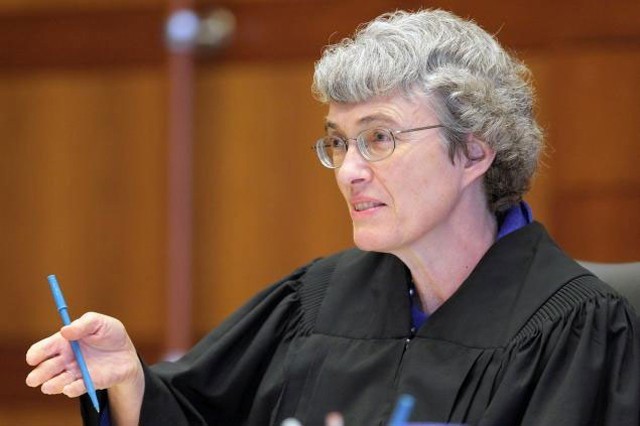Same-sex couples can start marrying on Monday across New Jersey, after the state’s Supreme Court denied Gov. Chris Christie’s attempt to block the weddings and suggested that he would have a difficult time winning an appeal of a lower-court ruling that allowed them.
A State Superior Court judge ruled last month that the state had to allow same-sex marriage to comply with two decisions: the United States Supreme Court ruling in June that same-sex married couples have the same rights to federal benefits as heterosexual married couples, and a 2006 ruling by the New Jersey Supreme Court that same-sex couples were entitled to all of the rights and benefits of marriage.
The Superior Court judge, Mary C. Jacobson, ruled that the marriages could begin on Monday.
Mr. Christie’s office appealed the decision, and the state’s Supreme Court has agreed to hear the appeal, with oral arguments scheduled for early January.
But on Friday, the court unanimously denied the Christie administration’s request for a stay on marriages until the appeal was settled.
While the court’s ruling on Friday applied only to the request for a stay, it also indicated that the justices did not think the appeal had a “reasonable” likelihood of success.
“The state has advanced a number of arguments, but none of them overcome this reality: same-sex couples who cannot marry are not treated equally under the law today,” Chief Justice Stuart Rabner wrote in his opinion. “The harm to them is real, not abstract or speculative.”
Mayors in Jersey City, Newark and Asbury Park, among others, had said they wanted to be the first to marry same-sex couples, and gay rights groups had begun helping couples file for marriage licenses and plan ceremonies to begin when the clock strikes 12:01 a.m. on Monday.
Gay rights groups are also pushing the State Legislature to overturn Mr. Christie’s veto of a 2012 bill that would have allowed gay marriage. Mr. Christie has said he believes that marriage is between a man and a woman, and he has suggested that the issue should be put before voters in a referendum.
Author: Kate Zernike
Publication: The New York Times
Date: 18 Ocotober 2013

